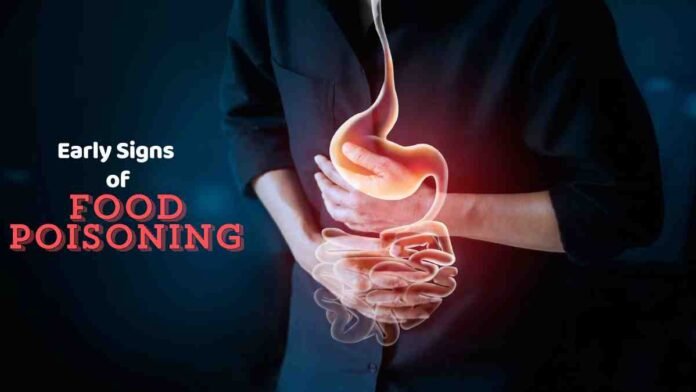When you eat or drink something contaminated, it might cause food poisoning and make you sick. It is rather frequent and may be brought on by dietary poisons, viruses, or bacteria. Early signs, such as nausea or cramping in the stomach, should be recognized as they assist in stopping the problem from getting worse and lower the chance of significant consequences.
Early Signs of Food Poisoning
- Vomiting and nausea: Usually one of the first symptoms, these are your body’s rapid response to get rid of dangerous toxins.
- Diarrhoea: When the digestive tract tries to rid itself of toxins, frequent, loose, or watery faeces result.
- Abdominal cramps: A severe or mild pain in the stomach region that indicates inflammation in the digestive tract.
- Food is fever and chills: The body’s natural response to fight off the infection caused by contaminated food.
- Fatigue and Weakness: As your body expends energy fighting the poisons, you may feel weak or exhausted.
What to Do Next
- Rest and Hydration: In order for your body to heal from food poisoning, you must get enough rest. Because food sickness can induce dehydration through vomiting and diarrhoea, staying hydrated is just as vital. Regaining lost fluids and averting more issues can be achieved by consuming an adequate amount of liquids, such as water and oral rehydration treatments that contain electrolytes.
- Avoid Solid Food: It’s advisable to steer clear of solid foods in the beginning, particularly if you’re feeling queasy. When your symptoms start to get better, gradually start giving yourself bland, simple-to-digest meals like bread, applesauce, rice, and bananas. These meals facilitate easier digestion without upsetting your system and are easy on the stomach.
- Over-the-counter remedies: You should take caution while taking over-the-counter drugs such as anti-diarrheal or anti-nausea pills to reduce discomfort. Before taking any drug, always see your doctor. Sometimes, medications hide symptoms that call for more care.
- When to Seek Medical Help: If you suffer from severe symptoms such as blood in your stools, frequent vomiting, a high fever, or indications of dehydration (such as decreased urine or dizziness), you should see a doctor right once. Additionally, it’s imperative to visit a doctor to rule out more serious problems if symptoms persist for longer than 48 hours.
- Prevention Tips: Always follow good food hygiene procedures to prevent food poisoning in the future. Hand cleaning before handling food, fully cooking meats, keeping food at safe temperatures, and preventing cross-contamination in the kitchen are all part of this. The risk of foodborne infections can be considerably decreased by taking these simple precautions.
Conclusion
It’s critical to identify food poisoning symptoms early on in order to stop it from getting worse. Early detection of symptoms such as nausea, vomiting, and diarrhoea can help you treat the illness and prevent consequences. It’s critical that you pay attention to these symptoms since failing to do so might result in a delayed recovery and increased risk of major health problems including dehydration or chronic sickness. To be safe and well, put your health first at all times and treat food poisoning seriously.



